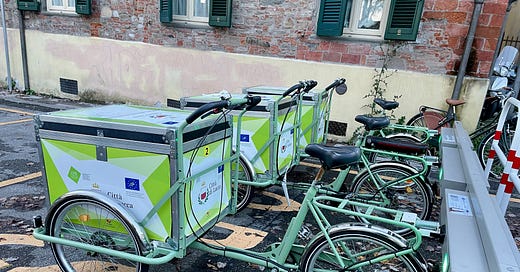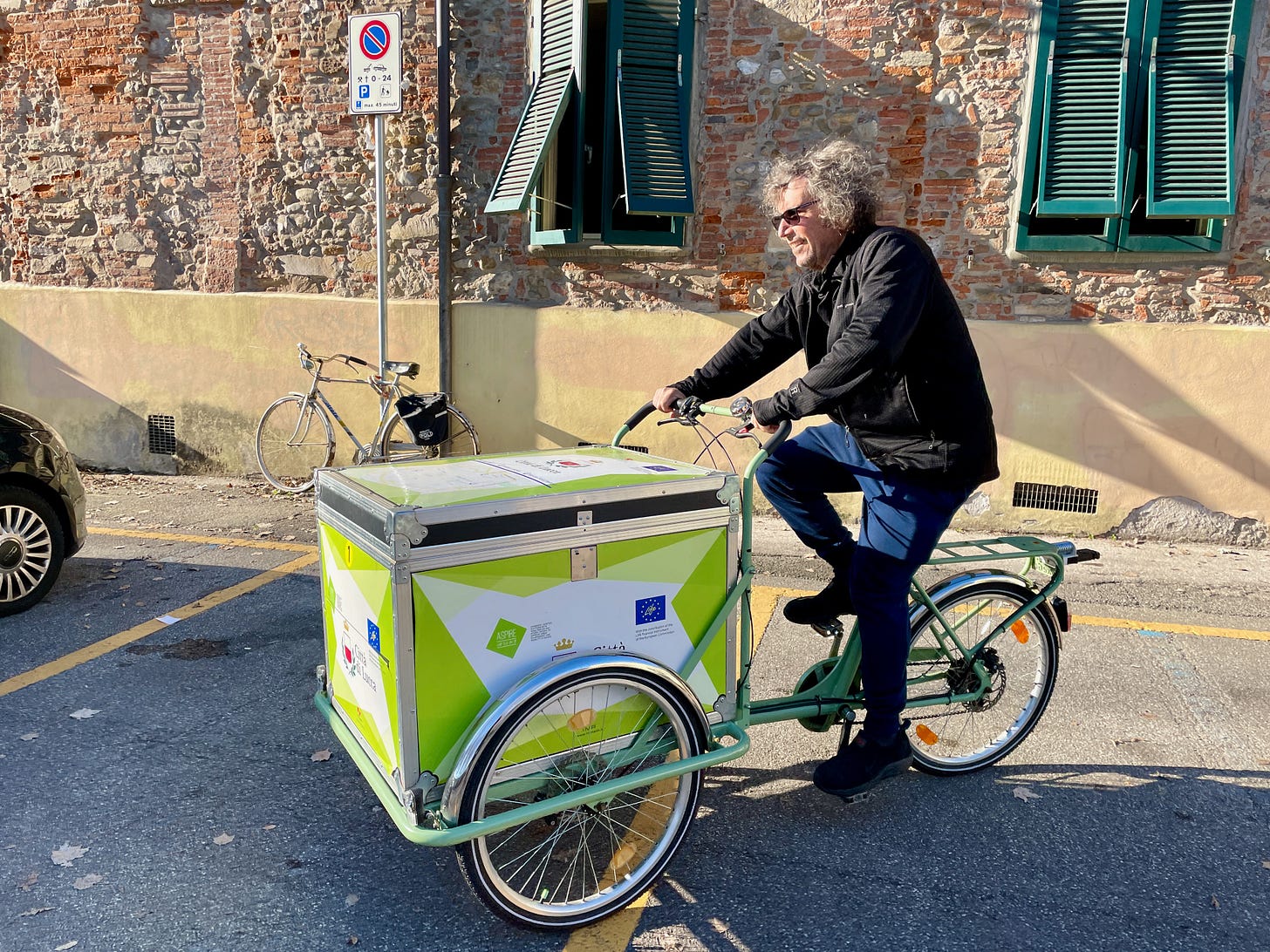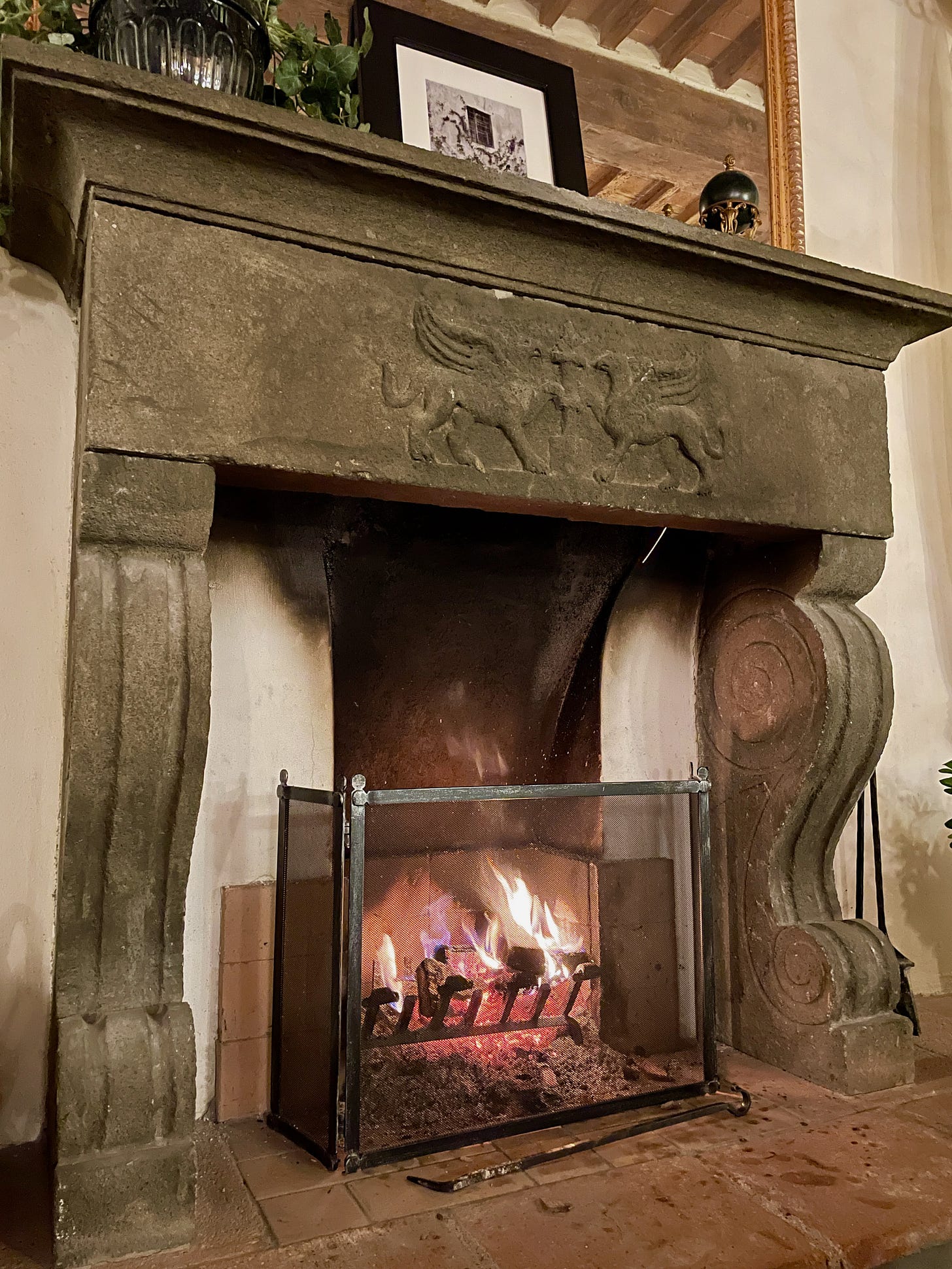Every basic task you once took for granted becomes an exotic—and occasionally heroic—undertaking abroad
That first winter in Lucca, the novelty of Italian life was still new enough to thrill us. We loved our medieval stone-walled apartment with its carved stone fireplace, but we were entirely unprepared for the logistics of actually using it. Getting firewood, in theory, should have been simple. But we’d arrived in Italy only a few months earlier, knew almost no one, and had no car. We could barely order a cappuccino, let alone arrange a delivery.
We tried everything we could think of. We’d spotted firewood stacked for sale at a big hardware store a mile away, but how to get it home? A rolling suitcase was immediately ruled out—not sturdy enough to manage the cobblestones, and we liked our luggage in one piece. We didn’t have any Italian friends with cars (we barely had any friends at all). The fantasy of hauling armfuls of wood through Lucca’s cobbled streets dissolved the moment we considered the weight, wheel friction, and the distance.
Delivery wasn’t an option, either. Not only did we lack the language skills to negotiate with a shopkeeper over the phone, but the idea of explaining our address over a phone line, in halting Italian, felt as daunting as hiking the Alps. Besides, they would only deliver a minimum of a cord, which would have filled up our entire living room.
For a while, we simply went without. We layered up and watched the empty fireplace, telling ourselves it was romantic.
Then, one chilly morning, we passed a cluster of pale green cargo bikes parked near the city walls. They were boxy, sturdy, and—most importantly—designed to carry things. Something clicked. What if we used one of those bikes to fetch firewood? Was that even allowed? Did it matter?
With a burst of expat optimism, we rented a cargo bike and my husband set off for the hardware store. When he first started riding away on this bicycle, he realized that it didn’t have the normal balance that bikes have, but had some peculiar qualities that made steering it feel like wrestling a stubborn wheelbarrow.
The route was straightforward except for one wrinkle: to get to the store, you had to pass through a long, low tunnel beneath the railroad tracks. On the way there, the ride was easy enough—pedal down the slope fast, gaining momentum, shoot through the tunnel, and using inertia, power-pedal up the other side.
At the hardware store, he loaded the bike’s box with as much firewood as he dared—at least 25 kilos, maybe more. The return journey was another matter entirely. Heading back, he rolled downhill into the tunnel, but halfway up the exit slope, the additional weight caused the bike to lose all momentum. The cargo bike and he ground to a halt, then began to roll backwards, the heavy firewood pulling him and the bike toward the bottom of the tunnel. For a moment, he considered abandoning both bike and wood and living forever under the railroad tracks.
Instead, he did what expats always do when confronted with the absurdity of daily life in a new country: he got off the bike, and heaved it—logs and all—up the slippery slope. He inched the awkward rig forward, but eventually, gloriously, made it to the top.
When he finally rolled up in front of our apartment, triumphant and more than a little disheveled, we unloaded the wood. That night, as the fire crackled and the apartment filled with warmth, we toasted our victory with red wine and a newfound appreciation for the ordinary. Sometimes, the smallest tasks are the ones that make you feel most at home.






